Ultrafiltration System vs. Reverse Osmosis System: Which One Should You Choose?

As the two main methods of water treatment, ultrafiltration (UF) systems and reverse osmosis (RO) systems can effectively purify water. However, there are key differences between the two in many aspects.
If you are a novice in the field of water treatment, you will definitely face many questions. For example, which is the best, ultrafiltration or reverse osmosis system? What industries are ultrafiltration and reverse osmosis respectively applicable to?
Here we will introduce ultrafiltration and reverse osmosis to help you choose the water treatment system that suits you.
What is Ultrafiltration System?
Ultrafiltration is a mechanical filtration method that generally uses pure physical separation technology of nano-scale membranes with a pore size of approximately 0.01 microns.
The filtration process mainly uses pressure to force water through the filter membrane, so that impurities and solid particles in the water are retained, and only mineral particles (such as calcium and magnesium) and water smaller than the pore size can pass through the membrane.
It is worth noting that the ultrafiltration system cannot reduce the TDS (TOTAL DISSOLVED SOLIDS) in water.
View Ultrafiltration Equipment.
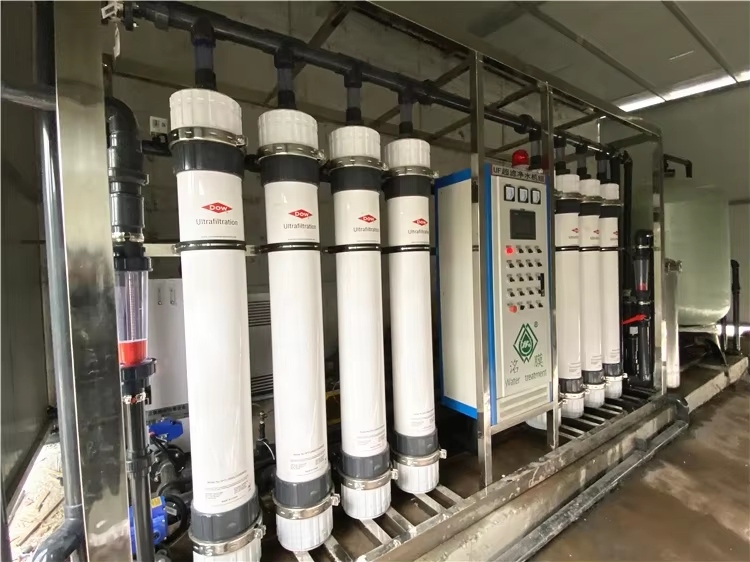
What is Reverse Osmosis System?
Similar to ultrafiltration, the working principle of reverse osmosis is based on the selective permeability of a semipermeable membrane (RO membrane). By applying pressure, water molecules are forced through the membrane and impurities are retained, thereby achieving the purpose of separation and purification.
The pore size of the RO membrane is much smaller than that of the ultrafiltration membrane, only about 0.0001 microns, which can filter almost all impurities, pollutants, and bacteria. It can be seen that after water passes through the reverse osmosis filter, it is high-purity purified water. At the same time, the reverse osmosis system can effectively reduce the TDS in the water, which is why reverse osmosis equipment is favored by customers who like high-purity purified water.
However, the high-precision filtration feature also determines that during the filtration process of the reverse osmosis system, many trace minerals that are beneficial to the human body, such as calcium, magnesium, sodium, etc., will be intercepted. If you like mineral drinking water, you need to add a mineralizing filter to the equipment to solve this problem.
Check Out Reverse Osmosis Equipment.
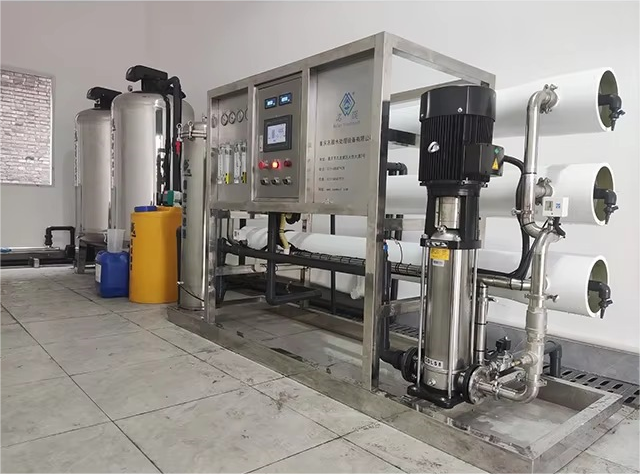
What Impurities Can Reverse Osmosis and Ultrafiltration Filter Out?
Ultrafiltration and reverse osmosis both filter out pollutants and impurities, but there are subtle differences between the two.
| Reverse Osmosis(RO) | Ultrafiltration(UF) | |
| Calcium | YES | NO |
| Arsenic | YES | NO |
| Parasites, bacteria, and other microorganisms | YES | YES |
| Copper | YES | YES |
| Magnesium | YES | NO |
| Nitrates | YES | NO |
| Salt | YES | NO |
| Sulfate | YES | NO |
| Fluoride | YES | NO |
| Virus | YES | YES |
| Drug | YES | YES |
| Parasites | YES | YES |
Which Industries Are Suitable for Ultrafiltration and Reverse Osmosis?
Since the ultrafiltration equipment has no phase change during the treatment process and has no adverse effects on the material composition, it is particularly suitable for the separation and concentration of heat-sensitive substances, such as drugs, enzymes, fruit juices, etc. Therefore, it is widely used in the beverage and food industry, pharmaceutical industry, mineral water manufacturing, etc., and is sometimes used as one of the pretreatment methods for reverse osmosis systems.
Reverse osmosis equipment has a wider range of applications, including seawater and brackish water desalination, pure water and ultrapure water preparation, industrial water treatment, river water/well water treatment, drinking water purification, liquid treatment and concentration in the pharmaceutical and chemical industries, wastewater treatment, high-purity water preparation in the electronics industry, and water for the food and beverage industry.
Choose UF System or RO System?
This needs to be determined based on the water quality you need to treat.
If the water contains nitrates and nitrites, only reverse osmosis can reduce the TDS in the water.
If the water has high turbidity or contains high arsenic content and more bacteria, reverse osmosis is the best choice.
If the water quality you want to purify is better, such as municipal water or surface water with good water quality, then the ultrafiltration system can fully meet your requirements.
Therefore, we recommend that relevant water quality tests should be conducted before choosing appropriate water purification equipment.
If you want to know more about water purification equipment, please contact our MINGMO water treatment equipment expert Mike!



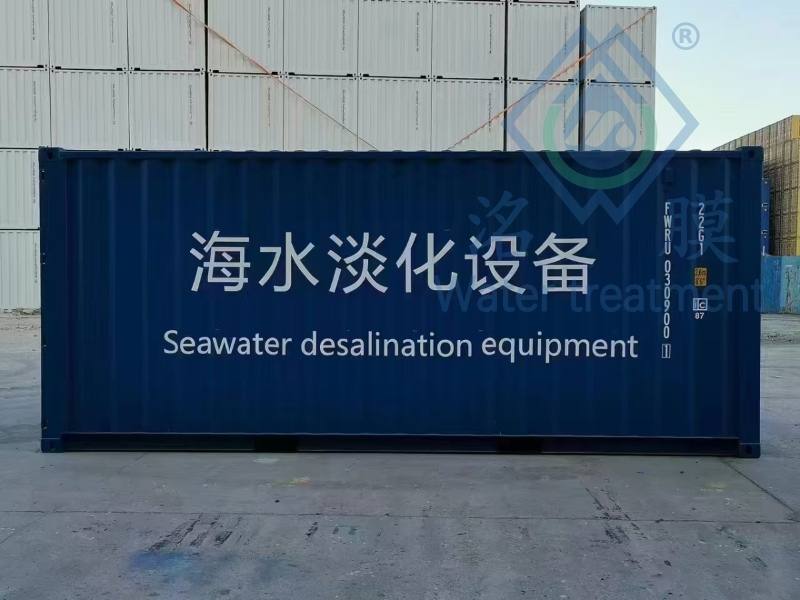 Containerized Seawater Desalination System
Containerized Seawater Desalination System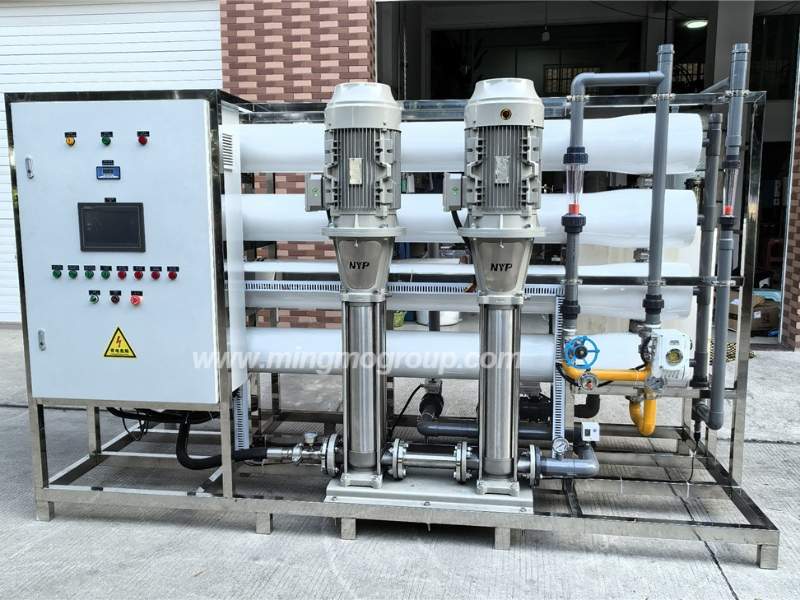 Seawater Desalination System
Seawater Desalination System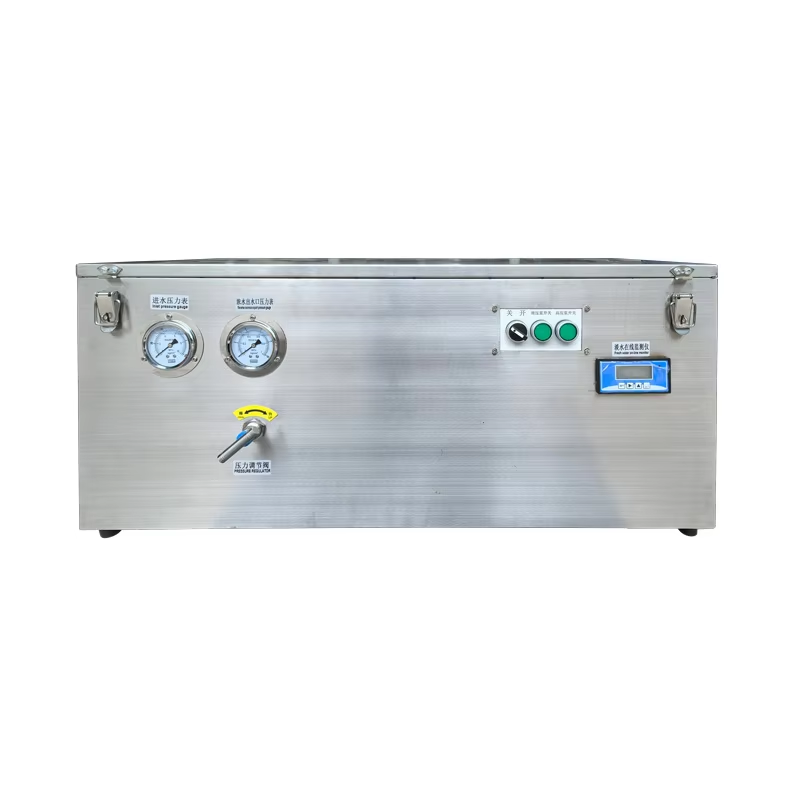 Small/Marine Watermaker Systems
Small/Marine Watermaker Systems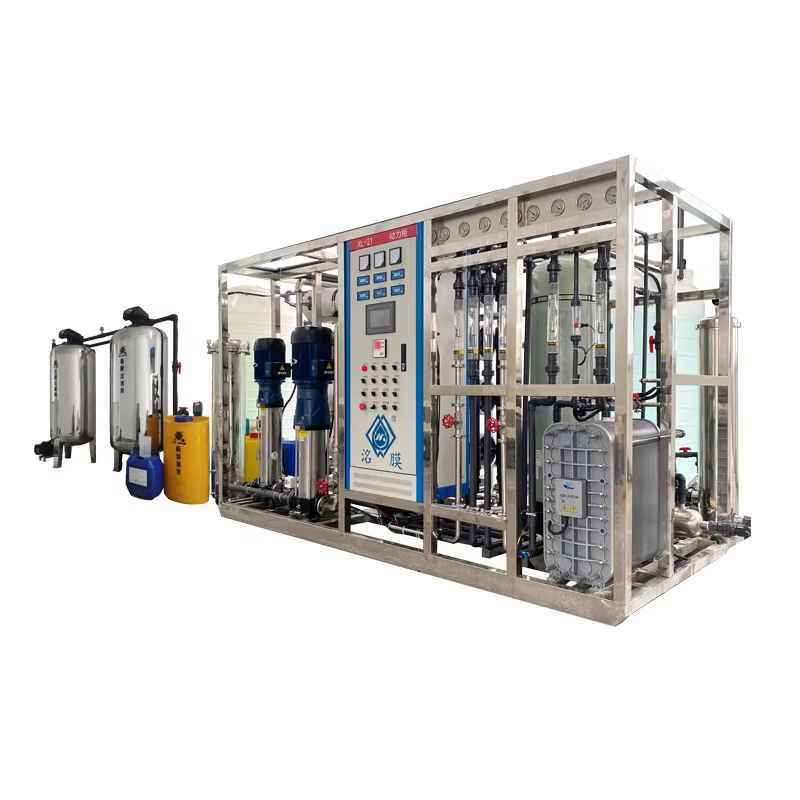 RO+EDI Ultrapure Water System
RO+EDI Ultrapure Water System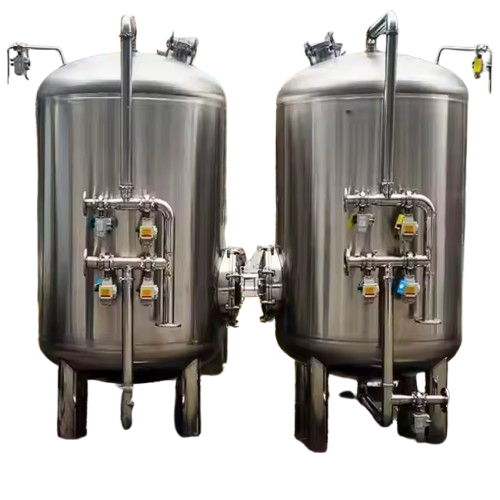 Media Filter
Media Filter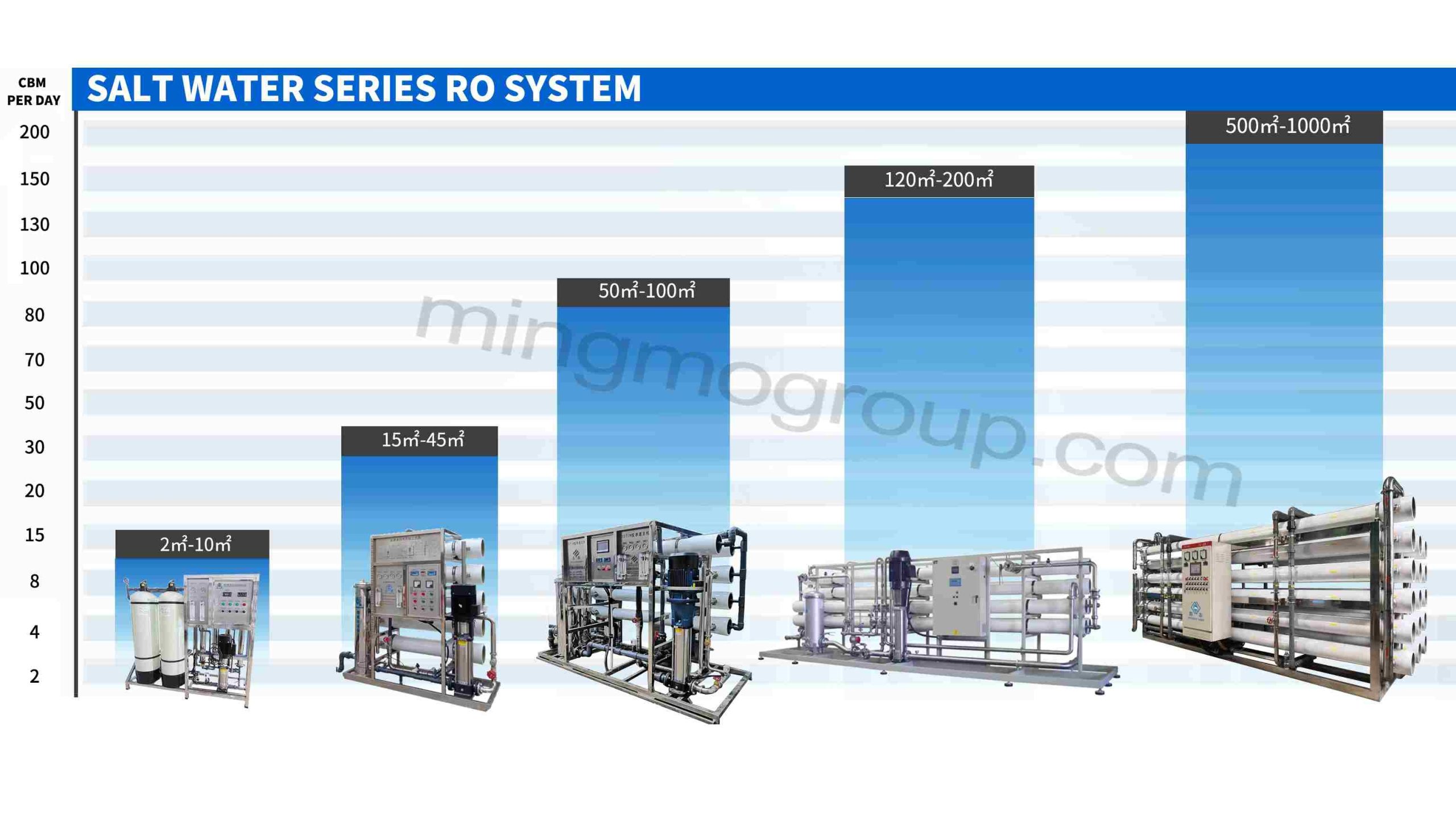 Brackish Water Reverse Osmosis Treatment System
Brackish Water Reverse Osmosis Treatment System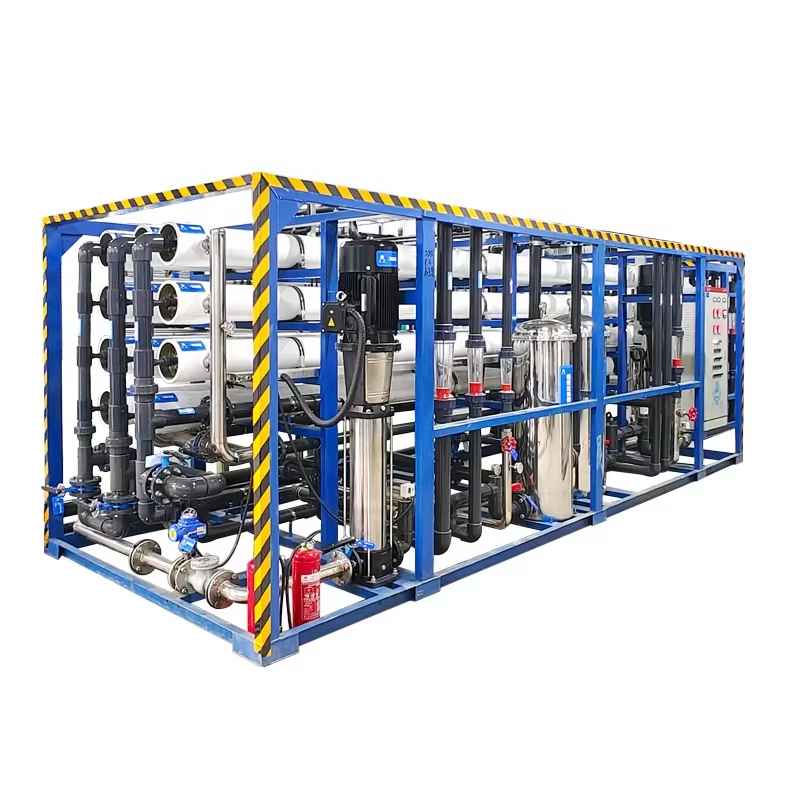 Large RO Desalination Machine
Large RO Desalination Machine